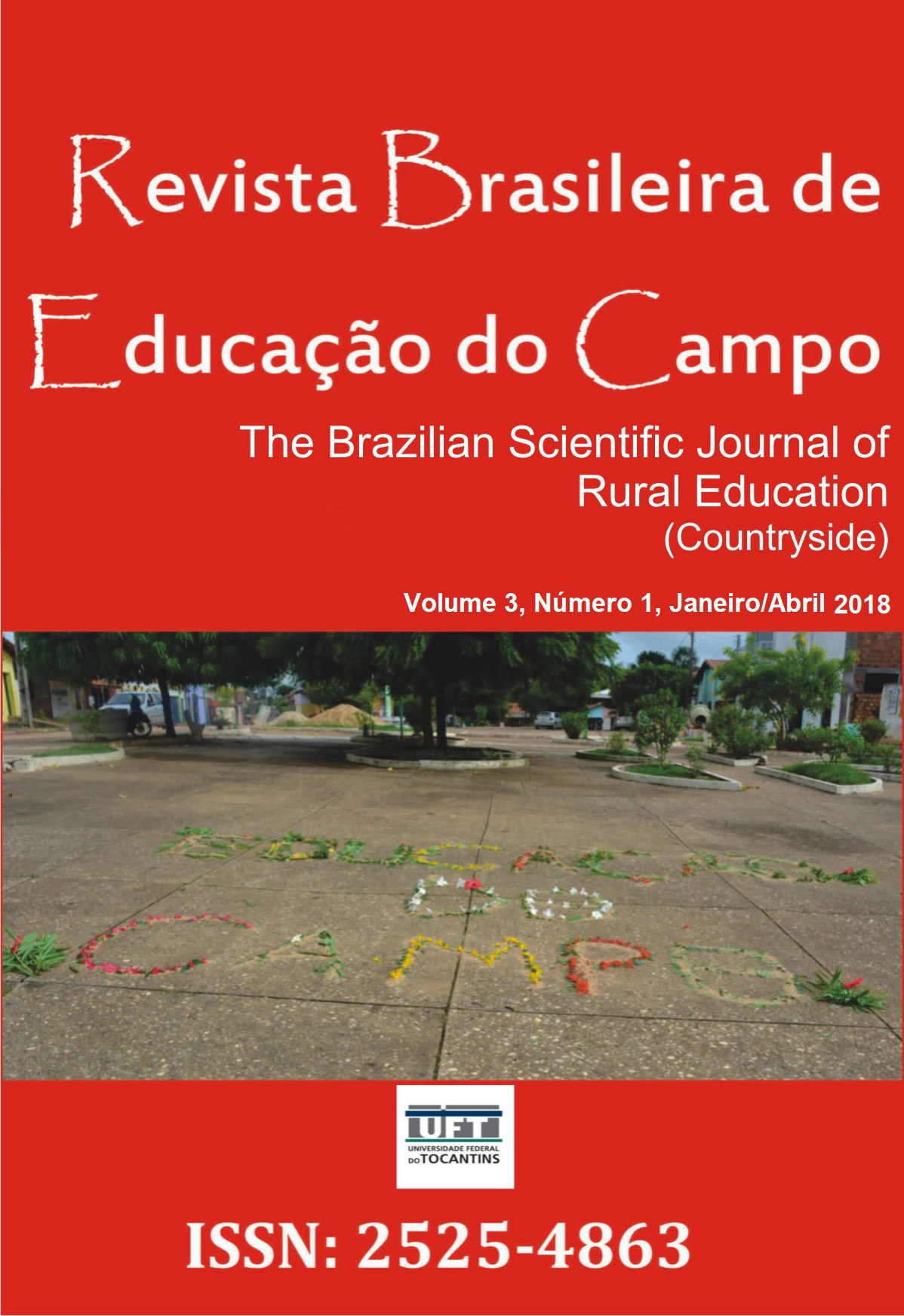La presencia de la tecnología en la Educación del campo: mapa de la producción científica nacional de los últimos cinco años
DOI:
https://doi.org/10.20873/uft.2525-4863.2018v3n1p245Resumen
ABSTRACT. The objective of this article is to map the Brazilian academic productions, within the SciELO digital library, which will address the topics of Technology and Education in the rural areas. In order to visualize the current national scenario in relation to the publications related to technology in the rural schools, we search for Portuguese-language works with the following keywords: Technology in Education, Rural Education and Rural Education Technology. With the results, we performed a comparative analysis between the total production recovered and production from the period from 2013 to 2017. Thus, we can identify in which fields of study the searches are more advanced in relation to the publications and, where we find less results, such as those refer to Technology and Rural Education, which may attract new research and publications in these less-exploited areas.
Descargas
Citas
Carlos, A. F. (2007). Seria o Brasil “menos urbano do que se calcula”? In Carlos, A. F. (Org.). O espaço urbano: novos escritos sobre a cidade (pp. 129-136). São Paulo, SP: Contexto.
Ferreira, A. B. H. (1999). Novo Aurélio Século XXI: o dicionário da língua portuguesa. Rio de Janeiro: Nova Fronteira.
Fischer, R. M. B. (2006). Televisão & Educação: fruir e pensar a TV. Belo Horizonte, MG: Autêntica.
Fonseca, J. S. (2002). Metodologia da pesquisa científica. Fortaleza, CE: UEC.
Gil, A. C. (2017). Como elaborar projetos de pesquisa. São Paulo, SP: Atlas.
IBGE. (2010). Censo Demográfico. Recuperado de: http://www.ibge.gov.br
Kenski, V. M. (2015). Educação e tecnologias: o novo ritmo da informação. Campinas, SP: Papirus.
Libâneo, J. C. (2007). A escola com que sonhamos é aquela que assegura a todos a formação cultural e científica para a vida pessoal, profissional e cidadã. In Costa, M. V. (Org.). A escola tem futuro? (pp. 23-50). Rio de Janeiro, RJ: Lamparina.
Minayo, M. C. (2012). O desafio do conhecimento: pesquisa qualitativa em saúde. São Paulo, SP: Hucitec.
Minayo, M. C. S., & Minayo-Goméz, C. (2003). Difíceis e possíveis relações entre métodos quantitativos e qualitativos nos estudos de problemas de saúde. In Goldenberg, P., Marsiglia, R. M. G., & Gomes, M. H. A. (Orgs.). O clássico e o novo: tendências, objetos e abordagens em ciências sociais e saúde (pp. 117-142). Rio de Janeiro, RJ: Fiocruz.
Goldenberg, S., Castro, R. C. F., & Azevedo, F. R. M. (2007). Interpretação dos dados estatísticos da SciELO (Scientific Eletronic Library Online). Acta Cir. Bras. 22(1), 1-7. DOI: http://dx.doi.org/10.1590/S0102-86502007000100001
Polit, D. F., Beck, C. T., & Hungler, B. P. (2011). Fundamentos de pesquisa em enfermagem: métodos, avaliação e utilização. Porto Alegre, RS: Artmed.
Pontuschka, N. N. (2012). Para ensinar e aprender Geografia. São Paulo, SP: Cortez.
Saviani, D. (2005). Pedagogia Histórico-crítica: Primeiras aproximações. Campinas, SP: Autores Associados.
Vergueiro, W. (2010). Seleção de materiais de informação. Brasília: Brinquet de Lemos.
Publicado
Cómo citar
Número
Sección
Licencia
Proposal for Copyright Notice Creative Commons
1. Policy Proposal to Open Access Journals
Authors who publish with this journal agree to the following terms:
A. Authors retain copyright and grant the journal right of first publication with the work simultaneously licensed under the Creative Commons Attribution License that allows sharing the work with recognition of its initial publication in this journal.
B. Authors are able to take on additional contracts separately, non-exclusive distribution of the version of the paper published in this journal (ex .: publish in institutional repository or as a book), with an acknowledgment of its initial publication in this journal.
C. Authors are permitted and encouraged to post their work online (eg .: in institutional repositories or on their website) at any point before or during the editorial process, as it can lead to productive exchanges, as well as increase the impact and the citation of published work (See the Effect of Open Access).














